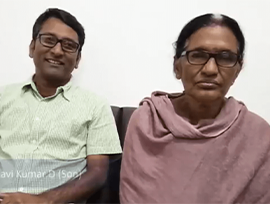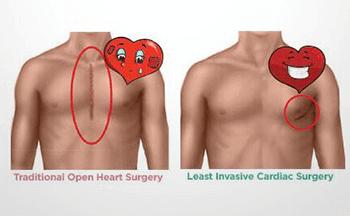Toll free Number
1800 202 4969
Emergency
080 4962 4962
Book An Appointment
Considering the patient safety, We are temporarily withdrawing the online appointments. We will come back soon.

MS (General Surgery), M.Ch (CTVS), FACS (USA), FMICS (USA)
Department - Institute of Cardiac Sciences
Head & Senior Consultant - Cardiothoracic & Vascular Surgery

MS (General Surgery), M.Ch (CTVS), FACS (USA), FMICS (USA)

Head & Senior Consultant - Cardiothoracic & Vascular Surgery

Visiting Consultant - Cardio-thoracic & Vascular surgery
.png)
Consultant- Robotic Cardiac Surgeon
Greetings Sir,
At Sakra World Hospital I had a very pleasant time with doctors, nurses and all staff were very good at their work. The

Sakra World Hospital is the best Multispecialty hospital in Bangalore. With over 200+ doctors with expertise across the healthcare sector, Sakra World Hospital has existed

I came here for the treatment of my brother V. Prasada Rao, who complained of chest pain and also who had undergone CAB earlier. Doctors

My mother was facing dizziness and uneasiness for around a week before we reached out to heart centers and cardiologists. We met a few doctors

Dr. Adil’s patient- Pushpavati
“My mother, when she was in her village developed some pain in her chest. We took her to a general physician, initially,

My mother was facing dizziness and uneasiness for around a week before we reached out to heart centers and cardiologists. We met a few doctors

A few months back my father in law had undergone a surgery under Dr.Adil Sadiq and we were very much satisfied with the treatment and

I am Rajeev. I was born with a congenital defect in my heart known as the Bicuspid Aortic Valve Stenosis in which two leaflets of

Mr.Yakub Mirza from Pakistan shares his experience after undergoing the Least Invasive Cardiac Surgery (Cardiac L.I.S) by surgeons at Sakra World Hospital, India's foremost hospital

Successful cardiac surgery of baby Akiyal from Maldives, performed by one of the best cardiac surgeons at Sakra World Hospital, Bangalore.
Baby Akiyal, Maldives


Gone are the days when a dreaded heart operation entailed cracking open your breastbone, and ensuing recovery took...

Aortic valve surgery is one of the commonly performed procedures in cardiac surgery across the world. As an alternative to...

Every year thousands of people in India alone, require aortic valve surgery which can not only be expensive but also...
.png)
The field of medical science has been constantly evolving, embracing technological advancements to improve patient outcomes and surgical procedures.
.png)
Undergoing heart surgery is a significant event that often requires a comprehensive approach to recovery. Medications play a crucial...

January 11 2019
Subscribe For
Patients often seek out Dr. Adil Sadiq for his remarkable expertise in robotic cardiac surgery and minimally invasive cardiac procedures. His extensive experience and proficiency in advanced techniques make him a sought-after the Best Cardiac Surgeon in Bangalore.
Dr. Adil Sadiq is the best cardiothoracic and vascular surgeon in Bangalore, and has completed his MBBS from Bangalore Medical College and earned a Masters in General Surgery from Kasturba Medical College, Manipal. He further specialized in Cardiothoracic and Vascular surgery through training at the Sree Chitra Institute and completed a three-year specialized training in Cardiothoracic surgery with Emory University, Atlanta, USA. Additionally, he undertook a six-month fellowship at the Children’s Hospital, Atlanta, USA, focusing on complex surgical repairs, pediatric heart assist devices, and transplantation.
Dr. Adil Sadiq specializes in robotic cardiac surgery, minimally invasive cardiac surgery (including MICS CABG and VATS), and pediatric cardiac interventions. He is also skilled in complex procedures like Percutaneous Transcatheter Aortic Valve Implantation (TAVI).
Dr. Adil Sadiq practices at Sakra World Hospital, one of the best heart hospitals in Bangalore.
To schedule an appointment with Dr. Adil Sadiq at Sakra World Hospital, you can reach out to the hospital directly. The staff will guide you through the appointment booking process.
